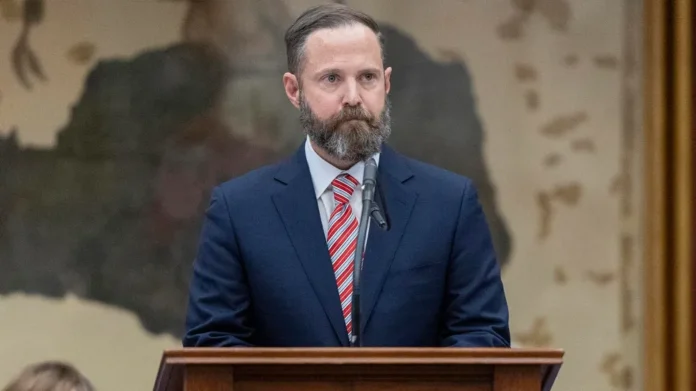Texas lawmakers saw a dramatic shake-up in the state Capitol on Tuesday when House members voted down the hard-right’s pick for Speaker of the House, exposing deep divisions within the Republican Party. Instead, Dustin Burrows won the job, thanks in part to support from Democrats who saw him as the better option compared to his opponent.
In a statement after being elected, Burrows spoke about the weight of his new role. He emphasized his commitment to addressing key issues for Texans, including improving education, providing property tax relief, strengthening water resources, and ensuring public safety. He also promised to lead in a way that values diverse perspectives and represents all districts fairly.
The decision marked a significant win for Texas’ more moderate Republican faction, even as questions linger about how Democratic influence might fare under Burrows’ leadership. The Speaker’s race highlighted growing tensions within the GOP, particularly after the impeachment and subsequent acquittal of Attorney General Ken Paxton. Paxton’s impeachment had sparked fierce debates among Republicans, with some accusing the party’s leadership of not going far enough on conservative priorities like abortion and immigration.
Democratic state Representative Toni Rose, who supported Burrows, said he’s the kind of leader willing to engage in meaningful conversations. This set him apart from his opponent, Republican Representative David Cook, who had pledged to block Democrats from running committees—a bipartisan tradition that has long been part of the Texas House’s more moderate approach.
The role of Speaker became vacant after Dade Phelan, the previous Speaker, lost favor with the GOP’s hard-right wing. Phelan’s support for Paxton’s impeachment had angered some Republicans, and Paxton himself later campaigned against members who opposed Cook’s candidacy.
While Burrows and Cook don’t differ much ideologically, Cook became the preferred choice of Republicans who felt Democrats held too much power in the House. These divisions were fueled by frustrations over the failure to pass taxpayer-funded private school programs last year, which became a key issue heading into the November elections. In those elections, Republicans expanded their majority and made gains along the U.S.-Mexico border.
Over the past few years, Texas has passed some of the strictest laws in the country on abortion, immigration, and voting. This year, Republican lawmakers are pushing for even tougher measures, including cutting public funding for gender-affirming care for adults and ending in-state tuition for undocumented college students.
The outcome of this leadership battle signals the challenges ahead for the Texas House as it navigates an increasingly divided political landscape while tackling pressing issues for the state.





